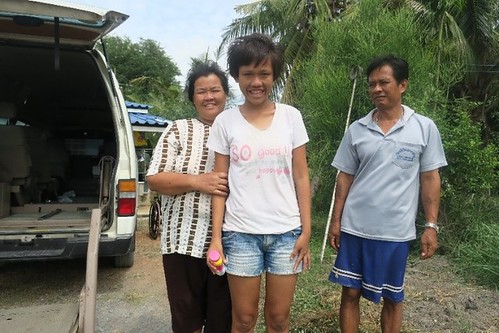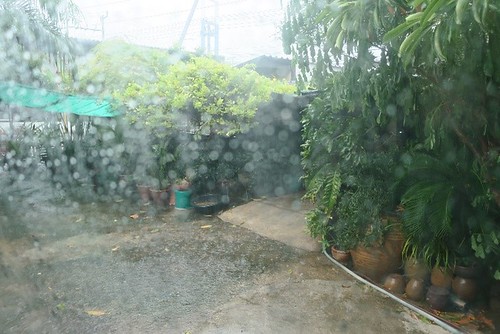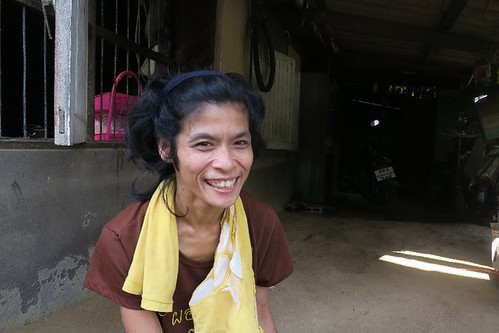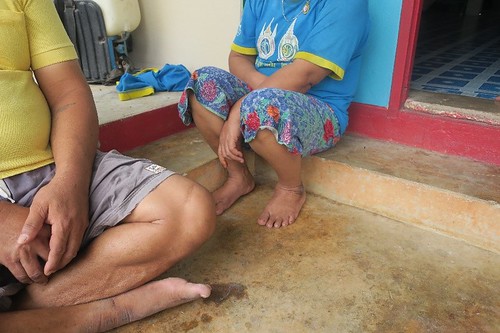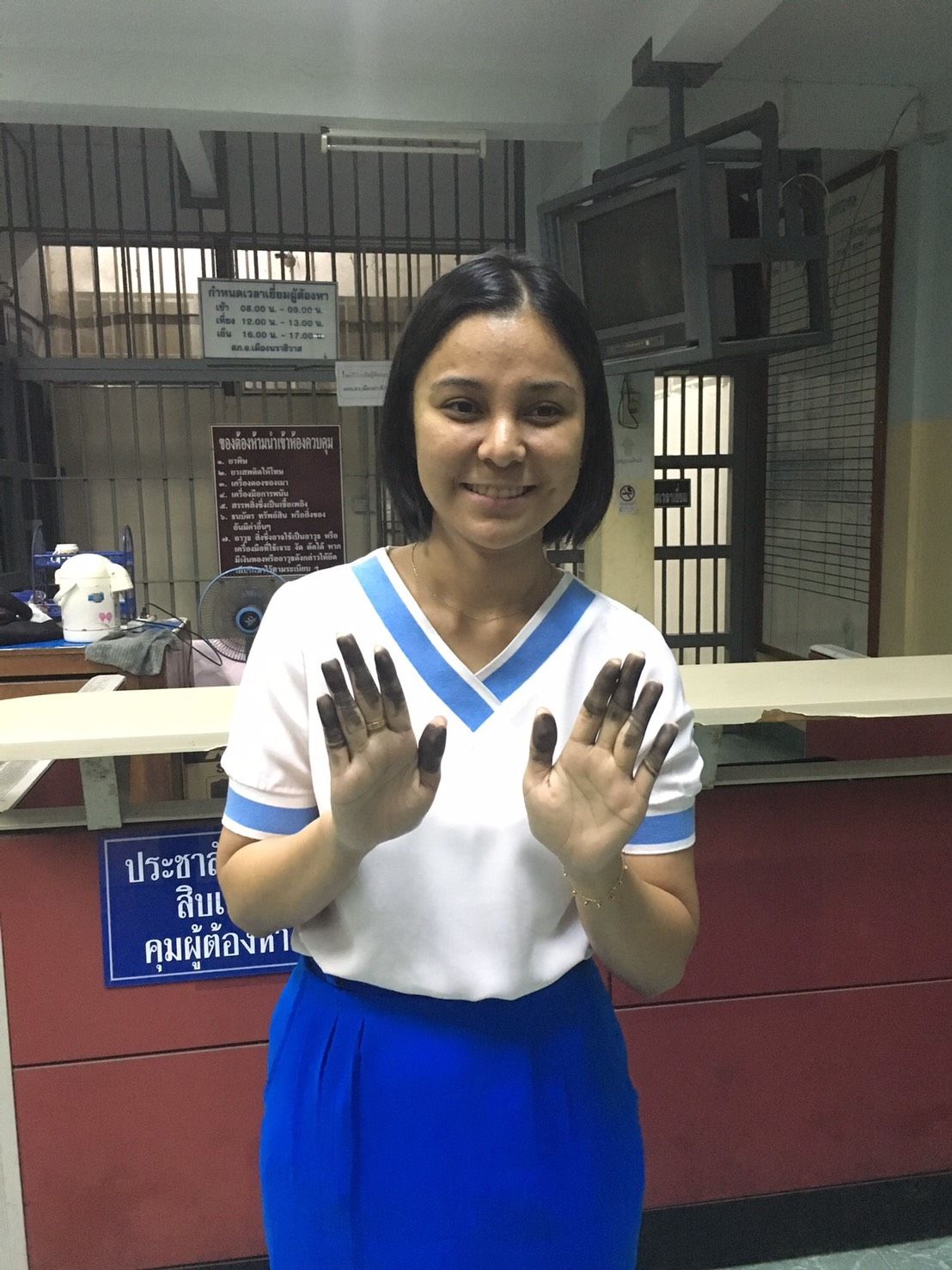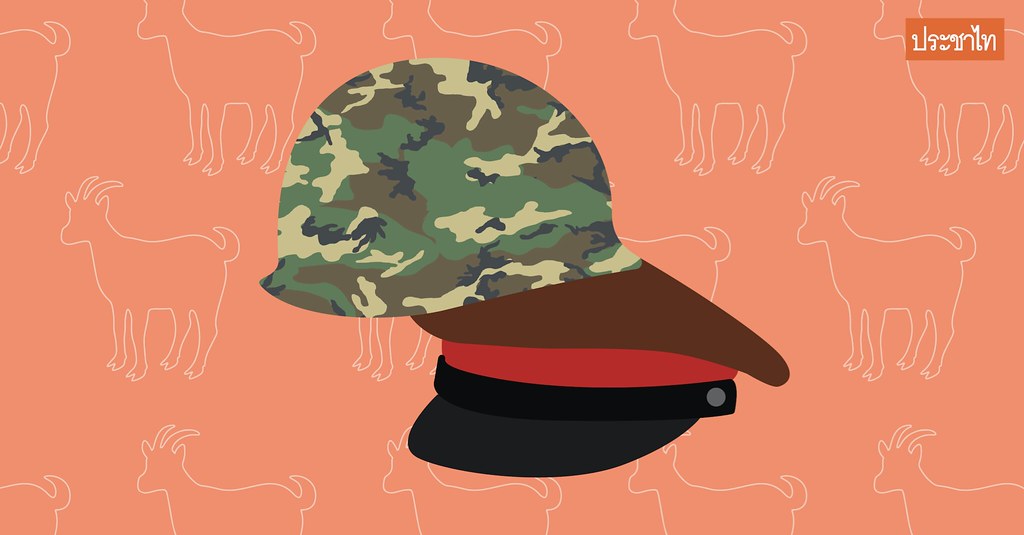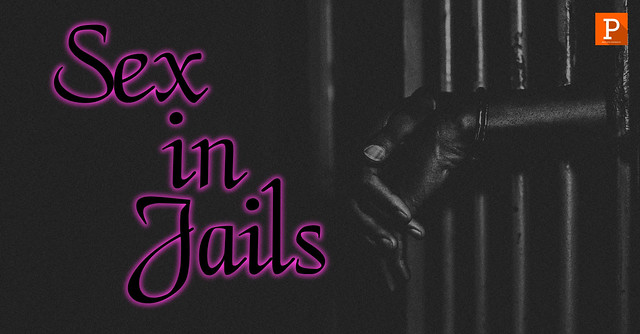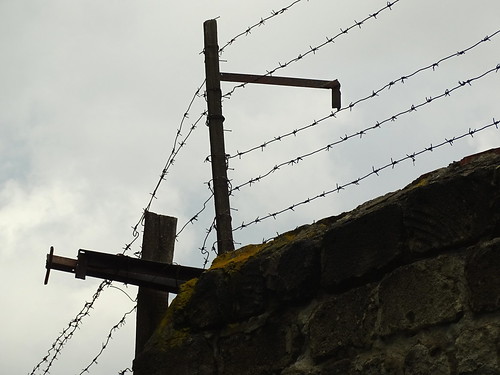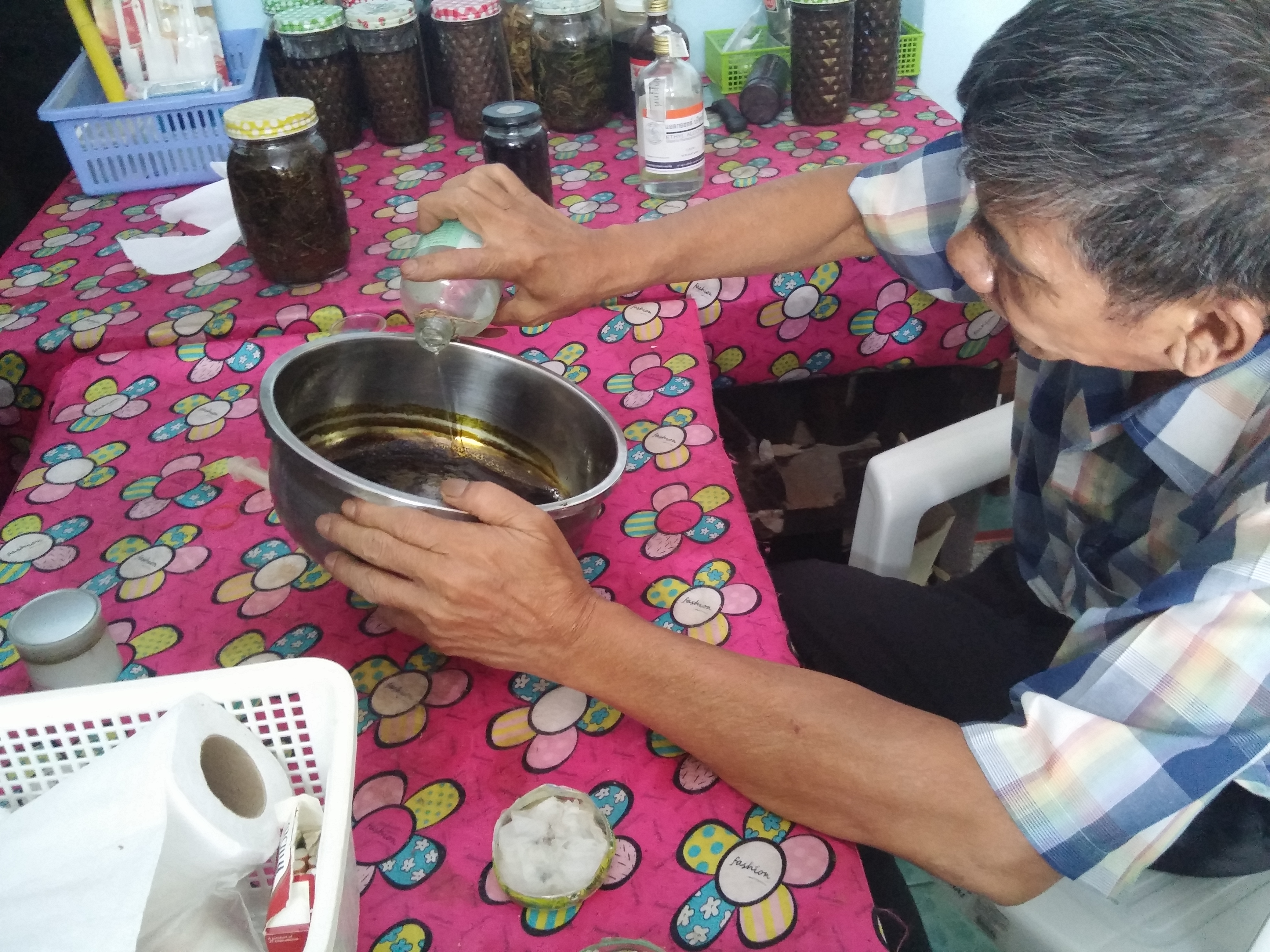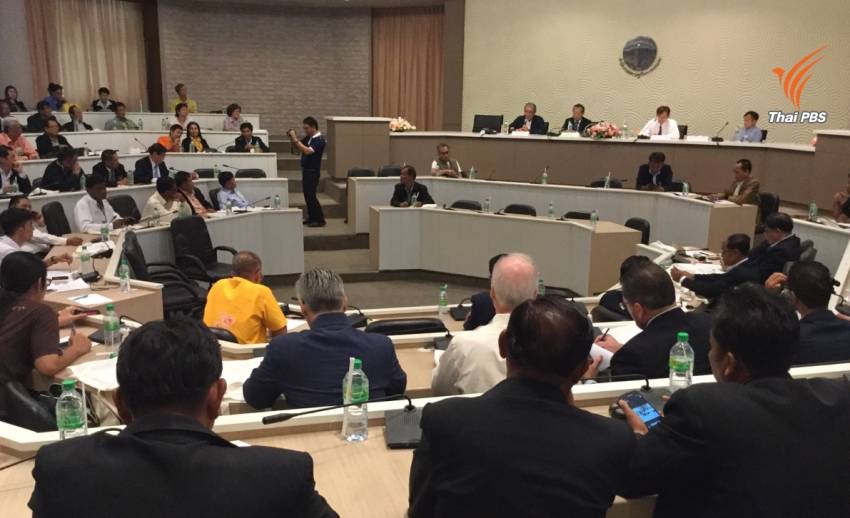“We talked by phone. My little brother talked for me, I didn’t talk to her myself (laughs). After more than a week, I went to pick her up to live with me, and then I proposed to her. I can’t really pinpoint why she’s so nice. I like her for how hard-working she is, waking up early to do housework and taking care of the kids. When I took her to my uncle for him to look her over, he said I could have her if I want. Before, I took many girls for my uncle to look at but he said this one got up late, or was too lazy to wash the dishes. Once the meal was over they hid the dirty dishes. Lazy. But Sim is hard-working. She gets up to do laundry at 4 and 5 am. Uncle sneaked in to watch her.”
This is what a disabled husband said about his disabled wife when we asked him how they met.
These answers may be really common if we ask abled people. However, very few people can even imagine disabled people having a married life. Some probably think that disabled people don’t even have boyfriends/girlfriends because in the past “sex” and “disability” are completely separated from each other. Most abled people do not understand and are not in a position to understand disabled people because the worlds of the two groups are extremely distant from each other.
Therefore, disabled people themselves have received no sex education. Some are kept away from it and fed only with fear-inducing information, causing many to stay away from these matters as much as possible, and there are quite a number who escape from it through sterilization.
How is sterilization physically harmful? Many disabled women undergo forced sterilization, many without being informed and many more because their families persuade them. We found that this phenomenon is widespread because people believe it will cut short the process of producing more disability from giving birth to disabled children.
Some teenaged disabled girls have been sterilized since childhood. After they grow up they are able to take care of themselves may want a family, but sadly there will never come a day when they will be mothers and have their own children.
Read Part 1: Disabled women, doubly cursed, raped, sterilized
“Love”
In the middle of the overlapping roofs of a small community, in one blue house, a wicker cradle holds a sleeping short-haired girl. Although the size of the cradle doesn’t let her extend her legs or stretch her arms above her head, the stifling silence and heat of midday easily put her to sleep.
![]()
Aran and Prachum’s family
Aran Namab or “Sim,” a 39-year-old woman rocks the child’s cradle with a smile on her face. She’s a mother of two daughters: one is asleep in the cradle and the other is just now playing behind her.
Aran is a plump woman with short hair and a broad smile on her face. She speaks a bit slowly and takes a lot of time to think of her replies when we ask her questions. On the surface, she looks a bit like she has Down’s Syndrome from the look in her eyes, but more than that is her sight is blurred to the point where she can hardly see and the left side of her body is paralyzed, which makes it hard for her to walk about.
“Actually, the doctor in Nakhon Pathom told her not to have children, but she wanted to. The doctor injected her with a contraceptive, but she stopped the injections because she wanted children. She only went to the doctor once when pregnant. If the doctor knew she was disabled, they would take it out. Her eldest child is disabled too. She can sit up for a little bit before falling over. She is always twisted and stiff. She can’t stand,” her neighbour interjected when I started talking about Aran’s family life.
Although Aran and her husband, Prachum Khongkhem, 41, were aware of the risks as the neighbour said, the couple were still determined to have children and build a family life of their own. “We just let it go, luk thung [rural folk] style. After three to four years, we had our first child. When we had our second child, we didn’t intend it. Sometimes she took contraceptives, sometimes not. But the injectable contraceptive, I even asked a doctor friend, what kind of fucking medicine did you inject into my wife? I suspect it was expired. So we had the second child, and then after that we got sterilized,” Prachum said.
Their two daughters are aged 5 and 3. Saeng, the older one, is a white-skinned, short-haired girl who looks slightly more like a boy. She’s small, has small limbs, and is thinner than most 5-year-olds. She can’t sit up and is always stiff. Both her hands and feet are turned inwards. Saeng can’t communicate. She just has small reactions, which is all she can express, like opening her mouth when she’s hungry or crying when she’s displeased, so she has to lie in the cradle almost all day. Aran’s little one, Donut, aged 3, is able to walk and run, and looks quite clever. Although she seems to be able to walk normally, you can clearly see that her legs are and they are gradually getting worse, according to what Aran says.
Still, Donut is a cheerful, talkative, smart girl, even a bit hyperactive who often shows love toward her sister by feeding her sweets every time she eats one herself. When Saeng cries, Donut doesn’t hesitate to hug her and pat her chest. During the interview, Donut ran all over the place, asking me for sweets, rummaging through my bag, and so on — no different from most 3-year-olds.
Aran and Prachum’s love story started over 10 years ago. Prachum said that he was quite old when he first met her. He had a wife before her, but they divorced after he had an accident when his motorcycle hit a 10-wheeler. Prachum became disabled when the bones in his ankles were deformed and he couldn’t walk. When he was sad and lonely from the divorce, a relative introduced him to Aran through the phone, and that was the start of their life together which has lasted 10 years.
“Before this, I had a wife from Yasothon. But after the accident, and my legs were gone and I was broke, she left me. After I broke up with her, I lived alone with a dog. When the dog died, I got Sim.”
“We talked by phone. My little brother talked for me, I didn’t talk to her myself (laughs). After more than a week, I went to pick her up to live with me, and then I proposed to her. I can’t really pinpoint why she’s so nice. I like her for how hard-working she is, waking up early to do housework and taking care of the kids. When I took her to my uncle for him to look her over, he said I could have her if I want. Before, I took many girls for my uncle to look at but he said this one got up late, or was too lazy to wash the dishes. Once the meal was over they hid the dirty dishes. Lazy. But Sim is hard-working. She gets up to do laundry at 4 and 5 am. Uncle sneaked in to watch her.”
“Now after I get home from work in the middle of the night, I ache all over because of all the bones missing from my legs because of the accident almost 10 years ago. My collar bones are completely gone. Even if I can’t work, I still have to. No matter how much it hurts, I have to put up with it for my children. She’s going to go to school soon,” said Prachum.
While he was talking, several neighbours who were listening with us cut in on each other with stories about Aran’s life.
“It’s like the parent’s aren’t all there 100%. They didn’t even finish Grade 1 at school. Their brains are no good. They don’t even know when their kids pooped into their diapers,” said an auntie neighbour.
“Although everyone told them that their children would be at risk of being disabled, they still wanted to have children. I see staff from local medical centre visiting them often, but they never give advice about raising children,” said another neighbour.
“She is protective of her older sister. Whenever someone looks like they’re going to take her sister, oh! she cries. No one can take her sister. Whenever someone picks up her older sister, she runs after them and says she won’t let them. So I tell her that if anyone comes to take her, we’re around all day. Sometimes something’s up and we wait and take care of her all the time. I don’t work, so I can stay close by. Sometimes [the mother] sits looking and can’t find them so she comes to me and asks me to help her look for her children. She can’t see very well. When her kid’s diaper is full, she knows nothing about it,” added another neighbour.
“Before, someone once asked for Saeng to bring her up because they didn’t have children. But I didn’t let them. I would rather starve to death than do that. Still, people keep asking for her. Donut often hears them, so she’s afraid and very protective of her sister.”
Aran’s household uses red groundwater for drinking and showering, so the house isn’t very sanitary. Before, an official from the district health centre would visit weekly and bring required medication. Both times Aran was pregnant, she didn’t go to hospital for check-ups because she had no money. But she experienced toxaemia late in both pregnancies and had to deliver by C-section both times. Although Prachum can work, it is still hard for him because one of his legs doesn’t work. Even today he still has to bandage it because the wound is still tender.
On her disability card, Aran’s disability is categorized as impaired vision. Because it’s only that, her other disabilities are not looked after or treated properly and she has not been properly diagnosed by a doctor. Neither Aran and nor husband have the knowledge or financial resources or understand enough to contact the hospital.
After we sat and talked awhile, the neighbours in the room with us started to leave one by one until they were all gone. Both husband and wife relaxed considerably and began telling their stories from a different angle.
“The family had enough money before, but it was all taken by my mother. But because we had to stay in this house close to the hospital that our children go to, we didn’t have much alternative. When I ask her for it back, she asks in return, ‘When did I take your damn money?’ My brothers and sisters are no help. I want to move back to Ratchaburi, but we have no money because I sold everything to get married and move here. After I have some money, I want to go back so bad. Soon I’ll change to a construction job so I’ll take my wife and kids with me to the camp. If they stay here, I can’t manage running back and forth from work to see them,” Prachum said.
Almost every day, Prachum has to go out to a construction job outside, leaving Aran and her children alone. When feeding her children, Aran misses their mouths and it sometimes goes into their noses or ears because she can’t see. Prachum is very worried and often comes home during the day to get food and water for his wife and feed the two children.
“When she was born and went into the oven [incubator], her body was so green. I had to come home every noon to feed my child milk. Although now Saeng can hold the milk bottle up and feed herself, it’s still pretty messy and goes all over the place, into her ears and eyes. Donut is always watching and guarding her sister because she’s afraid someone will take Saeng. Before, someone once asked for Saeng to bring her up because they didn’t have children. But I didn’t let them. I would rather starve to death than do that. Still, people keep asking for her. Donut often hears them, so she’s afraid and very protective of her sister.” Prachum says.
Saeng used to eat through a tube to her stomach, but it was a problem because the tube kept breaking and falling out, so they had to go to the hospital so many times it was a joke. So Prachum decided to pull the feeding tube out, bandage the hole, and change to feeding her by mouth instead.
“Sometimes Saeng stiffens up and stops breathing. Her face and eyes get all green. When she can breathe again, she laughs like nothing happened. It’s so tiring, but we have to keep fighting. Once I took her to physical therapy and she resisted. She held her breath until she turned green. If we have to go to the doctor every day, we won’t have any money, no money for gas. Although we don’t pay medical expenses, there’s no hospital near here that we can get to.”
“I see her gradually improving, not getting worse. Before, she couldn’t sit, but now she can. She’s getting better at speaking, and can make some sounds. I have motivation to work. I want to be at home, because when I go out it’s too much. It’s better to stay at home. I don’t want to bother with anyone. I’ll save up a bit of money from work, wait until my kids can go to school, and then we’ll move from here to Ratchaburi, my old home,” said Prachum.
“Worried”
Next, we move into the city centre, within the labyrinth of sois within sois. Most houses around here are one-storied, colourful. Most have an open area in front where some sit and some sell things. Warisara Uppatha’s house does sewing. The loud noise of the sewing machines doesn’t stop with piles of variously coloured cloth scattered around the room.
![]()
Warisara is the youngest person interviewed for this article. She has short hair and was wearing a blue t-shirt with long black pants. She’s a girl with a nice face and a sense of humour. Because of her weak muscles caused by cerebral palsy, she sits in a wheelchair.
Wirachat Uppatha, her dad, said that Warisara is talkative and clever. Before, his daughter studied at the special education school, but is now home-schooling using materials from the school.
“My wife and I were advised to sterilize our daughter as soon as she started her periods. But at that time we just wanted her to get sterilized in the least painful way possible, so we wanted to work and save up money first because it would be more expensive than normal. We talked to our child, and she agreed. I went to seminars before and I understood that this kind of thing can’t be decided by the parents.”
“The doctor advised us to do it. Just do it. The reason was about taking care of herself and protecting herself in case her parents and relatives are not around, then it may be one level of protection. But if you ask if it’s 100%, then it’s not. I changed my mind because I thought a lot about it. Now wasn’t the only chance to be sterilized, there’ll be more in the future, but if we do it now then there’s no going back.”
“Sometimes, [sterilization] is just for the convenience of the parents. When I looked at it, that’s all it was,” said Wirachat.
Warisara, however, said that she wanted to get sterilized because she was afraid she would be a burden to her mother, so when her mother asked, she agreed even though she was scared and never knew how sterilization was done. Still, Warisara was determined to do it, partly because she saw many disabled children near her house do it and get better, leaving only a small scar. Her friends at the special education centre where she studied also did it, so Warisara heard only about the pros and benefits of being sterilized.
“Sterilization is a tunnel-visioned solution, but outside, it’s wide open. If you don’t get out more, you don’t see what’s what. I once went for training about the rights of disabled women, so I know that in fact you have to ask the disabled person themselves and their family. Sterilization doesn’t solve the problem 100%. There’re still problems, only fewer. Nowadays we as parents aren’t in difficulty, but the thought of sterilization pops into our heads every now and then,” said her dad.
![]()
Warisara Uppatha
Although Warisara’s parents have a relatively clear stance on sterilization, they still can’t help but worry. The more they see the constant news about sexual assaults on disabled women, the more it makes them worried about their daughter’s future.
“A doctor from Nakhon Chai Si came to our house and asked if we had sterilized our daughter, and we answered, not yet. So he signed a form to go ahead and do it and even wrote on it ‘mentally retarded’. I’m very against this. My daughter isn’t retarded, but disabled with regard to mobility.”
“I look at her and can’t help but think what she’ll do if later her parents are not there. If we were better off, I’d be less worried than this. Once we enrolled her in Sri Sangwan School and I went to spy on her. My daughter is all there, but she can’t help herself in daily life. Other students had missing legs, arms. They brushed their teeth and raced up the stairs.”
“I told myself that no matter what, I would not put my daughter in that place. There’re 300 students and 3 care-givers. Think, when she’s stubborn, we hit her or leave her alone for an hour or two. If she went there, it would be like this, so we brought her back. If she stayed there, a care-giver would have to stay too, and we would have to pay the cost ourselves. So we decided that we should only do what we could manage,” the father continued.
Information from the Special Education Bureau says that there are less than 50 schools for the disabled nationwide, most scattered across the provinces. Although these special education schools help disabled children to enter the education system like other kids, the level of educational in many is much lower than the standard, and is not really adapted to fit individual students.
In Warisara’s condition, the muscles throughout the body will become distorted and stiff. She won’t be able to hold things or speak easily. Even though she can feed herself with one hand, the other is too stiff to do anything. Her parents are well used to the situation and understand what the doctors always say, that they should not expect much from a child like this.
“But I told the doctor, no matter what she’s like, it’s okay. Being beautiful is more important,” he said, smiling.
![]()
Warisara and her family
“I’ve never been embarrassed to take her places. I hope that if she knows lots of people, one day after we’re gone, there may still be other people to ask. It’s a way to find people to support her.”
“Now on a good day, a government agency brings us gifts, smiling prettily and taking photos and then leaving. Still, my daughter has never gotten any closer to getting more rights. She’s lucky to have found a good environment, with her dad, mom, siblings, aunties, and uncles. There is no one who objects to taking her out. When she was young, we went even more often. But now that she’s too big for her mother to carry her, we don’t take her out as much,” say her parents, taking turns telling Warisara’s story.
At this point, readers may be surprised why I chose to interview Warisara’s family, when it looks like there are no problems in terms of their daughter and sexual issues. It would be — if not for the visit of a health worker a few days before.
“A doctor from Nakhon Chai Si came to our house and asked if we had sterilized our daughter, and we answered, not yet. So he signed a form to go ahead and do it and even wrote on it ‘mentally retarded’. I’m very against this. My daughter isn’t retarded, but disabled with regard to mobility,” the father said.
The community of parents of disabled children know each other well, especially in smaller areas in neighbourhoods like this. Warisara’s parents have the opportunity to talk often to other families and found out that almost all the families made their daughters undergo sterilization, sometimes as early as 9 years old. Some families wait until their daughter’s second or third period. So this issue has become normal by implication.
“From the doctor’s perspective, if you’re disabled you all should be sterilized. Big-name doctors, however, won’t talk about this unless the guardian asks. Lower-ranked doctors, like those in the district clinics, will cut to the chase and say that sterilization must be done. I think the problem they’re afraid of is pregnancy. It’s not a burden for us to take care of this issue, but think if we are old, what will we do?” said the father.
The main worry that the parents have about Warisara is if they are not there and Warisara has to stay with her older brother. Even though they have faith in him, because he has helped take care of her since she was little, they feel unsettled and don’t feel as confident as if they were taking care of her themselves .
“If mom isn’t at home, I can do everything: help her shower, dress, change her Pampers, and sanitary pads. When she was taken to camp, she had to be separated from the other kids, and dad was always spying on her from afar. He thought ‘hey, how can they do this to her? I was worried (laughs). Still, I felt good about her getting into society because she seemed happy and was having fun, so dad’s happy too,” he said.
Yet even happy days may be overshadowed with suffering because we still cannot see a way for the future. And the system for looking after people with a difference in Thai society still cannot make it clear how they can have a life when they have no family to rely on. Warisara’s mom often tells her that she wants her daughter to go before her, because she can’t handle the anxiety if she merely thinks how Warisara will live with no parents.
“I’m scared when my parents say that it would be good for me to die before them. I’m scared they won’t take care of me.”
“If in the future we’re not here but our daughter still is, there probably has to be something done. I would probably have to leave her with some relatives who I can rely on, and I’d leave my property and house to them too. But if it’s possible, it would be good if she went first. Sometimes when I’m washing her, she speaks up that she wants to die before us. I’m sad to hear that.”
“Sometimes she’s naughty, so I hit her. She says ‘Hit me until I die, dad.’ When I hear her talk like that, it really gets to me,” added dad.
“I’m scared when my parents say that it would be good for me to die before them. I’m scared they won’t take care of me,” said Warisara.
Although her parents believe that Warisara can make a life by herself in the future, Warisara’s age is over the limit for a rehabilitation centre or other schools, so this option was wrapped up a few years ago. Since then, dad has been her trainer.
As far as I could see, Warisara is a modest person — she does not dare to ask anyone other than her parents to give her a hand with anything. This might be because she doesn’t get to go out and meet people very much. Her father also often forbids it. When she speaks to ask someone for help, she’s not used to it if she gets help from others and many times when she wants to do something, what she hears from her father tends to be “Don’t go bothering your sister.” Apart from preventing Warisara from learning to interact with others, the sense of being denied the chance to appeal to others means that she has never received help.
While we were talking about this, Warisara nodded at intervals and said “yes” all the time whenever we were talking about her father, the person who never lets her out of the house alone.
“Whenever I go out, I like people saying that this man’s skilled, he can do anything for his child. But really, I just want her to meet a group of her own, develop a close relationship with doctors, get access to various rights. That’s better than just lying down, twisted, without any sort of development. I want my daughter to have a social life. When I meet other parents whose children can make their own lives, I feel a fighting spirit and strength and I think my daughter must do that.”
“She’s a very considerate person. If we’re with other people I’m afraid she’s too considerate. But I do think that she can take care of herself if we let her. Our family have set limits and rules for her. I cannot come to terms with it but I have to accept letting her go now (smiles),” said the father with a resolute tone of voice.
‘Possessive’
We travel into the green fields of Sisa Thong District. Nuanphan Bandit’s house is behind two large houses. It is a low wooden house with a parking spot on the side and another hidden in the innermost part of the property. We sit in front of the house, where a deafening factory-sized fan is swinging from side to side.
Nuanphan is a disabled woman with a thin body, long hair and dark skin. Although no one can accurately determine what her disability is, from her appearance it’s not hard to see that she is not normal. She does everything slowly, she answers and talks slowly. Her mom says that Nuanphan only started walking when she was seven.
Sunan Kanyawong, her mother, said that Nuanphan was sterilized at 10 years of age, because at that time her parents had to go to work and leave her home alone with a younger brother with a similar condition.
“We did it because we were afraid she would get pregnant. We work outside. When she’s with other people, I don’t trust them. I see people with similar conditions getting sterilized, so I brought my daughter to do it too, so she would be safe. If she got pregnant it would be a burden for me as well,” said the mother.
![]()
Surasak Bandit (left), Sunan Kanyawong (center) and Nuanphan Bandit (right)
Although Nuanphan can communicate slowly in a way that she can understand, she has never been informed about her rights over her own body. Even when she was sterilized, she was not at all aware of the procedure or the effects it would have.
“I’m afraid other people will bully her but I don’t know what to do. When she got sterilized I told her. She knew, but it wasn’t her decision. She didn’t understand about this. Once before, someone came and did something to her. She was scared. She didn’t tell me. I had to find out on my own.”
“Once one of the employees at a garage did something to her. I caught him and pressed charges. He’s in jail. His little brother saw. When I asked him, I found out the truth. Then the worker quickly left home but the police caught him and he confessed. After that I was very cautious, so I had her sterilized,” said the mother.
“I didn’t know I was sterilized. I only knew I was in hospital. The doctor didn’t tell me,” said Nuanphan. Did she want to get sterilized? “I wanted to because I can’t take care of myself. I will get hurt” she said. Who told you? “No one told me. I don’t know either.” Nuanphan looks like she is about to cry. “It’s nice to live the three of us, mother and children.”
When Nuanphan was a little girl, she went to school but with her appearance and slow thinking, her teacher told her to drop out of school after the second grade to practise making handicrafts at home instead. Although studying isn’t really for her, Nuanphan is surprisingly good at housework.
“Now she can do everything for herself. When she wakes in the morning she helps her mother do housework: sweeping the floors, washing dishes, and all other housework. She’s afraid of getting electrocuted, though, so she’s too scared to cook the rice. This might be because she’s always at home. She might go out of the house once per month. She rarely leaves home, so she’s great at housework.”
“Now she goes to the non-formal education centre near our house. She just started and is in secondary school,” said her mother.
Although Nuanphan is sterilized now and her mother is much more relieved, her mom still does not dare leave her alone. Ever since Nuanphan’s dad died many years ago, the three-person family has stayed together from morning till night. Mom also does not leave the two children alone together.
After chatting for a while, Nuanphan, who has been listening quietly to the conversation with her mother, spoke up.
“I didn’t know I was sterilized. I only knew I was in hospital. The doctor didn’t tell me,” said Nuanphan. Did she want to get sterilized? “I wanted to because I can’t take care of myself. I will get hurt” she said. Who told you? “No one told me. I don’t know either.” Nuanphan looks like she is about to cry. “It’s nice to live the three of us, mother and her two children.”
When you look into the future, it’s really dim. The mother still can’t see how her two children can live in the future if she herself cannot be there to look after them, since she won’t even dare to let her children try life on their own. She brought up a Disability Services Centre in the community a lot and wants to get involved in founding a centre that hasn’t happened yet, because she hopes that after she’s gone there will still be a community ready to support her children.
“We can survive, us two siblings. We can grow and sell earthworms or find other work for hire. I want to drive a taxi. I can’t drive yet, but I will soon,” said Surasak Bandit, Nuanphan’s younger brother.
“Surasak wants to be a mechanic. Nuanphan can do work, but it’s not neat and tidy. If you work, you have to be neat and tidy, and put up with it, not just get tired and quit,” said the mother.
“I can sweep and mop floors,” said Nuanphan.
If we were to ask what’s the difference between “normal people” and Nuanphan and her brother, I would just say that the pair of them talk slowly. Other than that, Nuanphan is a woman whose body is complete and it would not be strange if she had an admirer who wanted to make a family with her in the future.
“If he got a wife, I’m afraid they wouldn’t survive. If they had a child, they would just dump the child on me and it would be such a burden. If I die, how are they going to make a living? And if Nuanphan has someone who wants her and likes her, I would have to look at him first. Is there anyone who would really like her?” said the mother.
‘Regret’
Away from the fields, in front there is a row of houses with coloured roofs. Most of the houses are single-storied as is common in rural areas. Even though the house of Yui (not her real name) is not so far from those houses, it still has quite a lot of personal space in proportion compared to other houses.
Yui is a teenage girl of 17 with a round face and pitch black hair, and looks younger than most girls her age. Samroeng Chuenklinthup, her mother, said that Yui was sterilized because of her neurological condition that started after she fell off a bed when she was little. This meant that Yui cannot really communicate using language. She was sterilized when she was 14, about a year after she got her period and could not take care of her personal hygiene. Because she was worried about what would happen in the future, Samroeng thought that sterilization was likely to be the best option at that time, so that Yui would not be a burden to whoever would take care of her after her mother. Because of this worry, Yui has never gone out anywhere or been apart from her parents even once.
“When she was little, she fell off the bed. Her body didn’t have any strength, like a paralyzed person. She’s been having constant seizures since. She’s not having seizures right now because she takes medicine for it. Before, I was working and had to take care of her myself. When she just started, she couldn’t recognize her parents, but now she gradually knows more.”
“About sterilization, the doctor is always asking me if I’m ready yet to do it. If something goes wrong, not only will I have to take care of my daughter, but also a grandchild,” said the mother.
Even though so far there has never been a problem about Yui being sexually assaulted, part of it is because she is always with her mother. Before, Yui often had the chance to attend a special education class in her community for children with developmental problems to come together to learn. However, the relatively high monthly fees added to costs of traveling back and forth indirectly put an end to her studying.
“You tell her (about being sterilized) and she’s probably not aware because she doesn’t understand. One part of me doesn’t want her to do it. I pity her. I want her to stay in her natural state. But I’m also scared of the future. I’m not sure if later I’m not here, it will be difficult. I’m afraid that if she’s with other people, something might happen. So, I decided to do it.”
“At school they never taught about sex at all. I never let her be with anyone else. Normally if I have to go out and she can’t go, I lock her inside the house.”
“I get stressed if I think about the future. I don’t know what to do. She has no siblings. Nowadays she can take care of herself a lot, showering, dressing, feeding herself, going to the bathroom. Sometimes she asks me if she’s put her clothes on correctly. Before, I always had to dress her because she couldn’t tell the front from the back. But now she can do it herself, which is the front and the back even and if the seam is on the inside or outside.
“I teach her things, like when she has a shower, wrapping her sarong under her arms. Before she comes out of the bathroom she has to wrap her sarong under her arms so that she’s not indecent. She remembers stuff and knows more than before. She understands when I teach her things, and can remember what I told her before,” the mother said.
“At school they never taught about sex at all. I never let her be with anyone else. Normally if I have to go out and she can’t go, I lock her inside the house.”
Although Yui has improved from before, her mom still sees her as a little girl. Of course, it’s not just in families with disabled children. Parents often continue to see their offspring as little children you have to carry. So this has meant that Yui’s mother has never planned for Yui’s and her own future.
“If I’m not here anymore, maybe my older sister can take care of her. On her dad’s side he only has younger sisters or brothers. On the surface, they get along, but if I leave them to take care of her, probably not. Sometimes I think that, if I know in advance what will happen, I would probably take her with me.”
“Still another part of me believes that she has got to survive. Sometimes she asks me, ‘Mom, do you eat like?’ Which is her way of saying, ‘Mom, do you want to eat?’ If I say yes, she will bring two plates, one for her and one for me. If I say not yet, she brings just one plate.”
“If I get the chance, I’d like to take her outside but I’m afraid she will make a scene and I’m afraid other people will be bothered. Some people give us strange looks. Still, I have to keep trying. If she reaches a point where she can help herself day in day out, then I won’t let her get sterilized,” the mother said in the end.
““If I get the chance, I’d like to take her outside but I’m afraid she will make a scene and I’m afraid other people will be bothered. Some people give us strange looks. Still, I have to keep trying. If she reaches a point where she can help herself day in day out, then I won’t let her get sterilized,” the mother said in the end.
Translated into English by Asaree Thaitrakulpanich
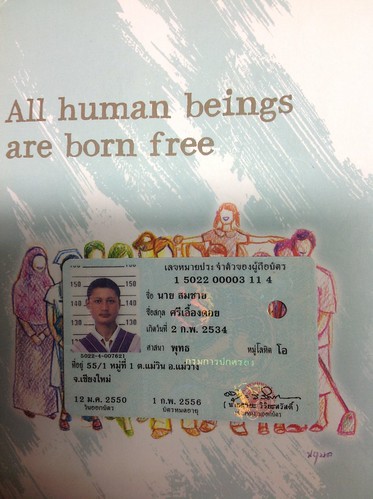
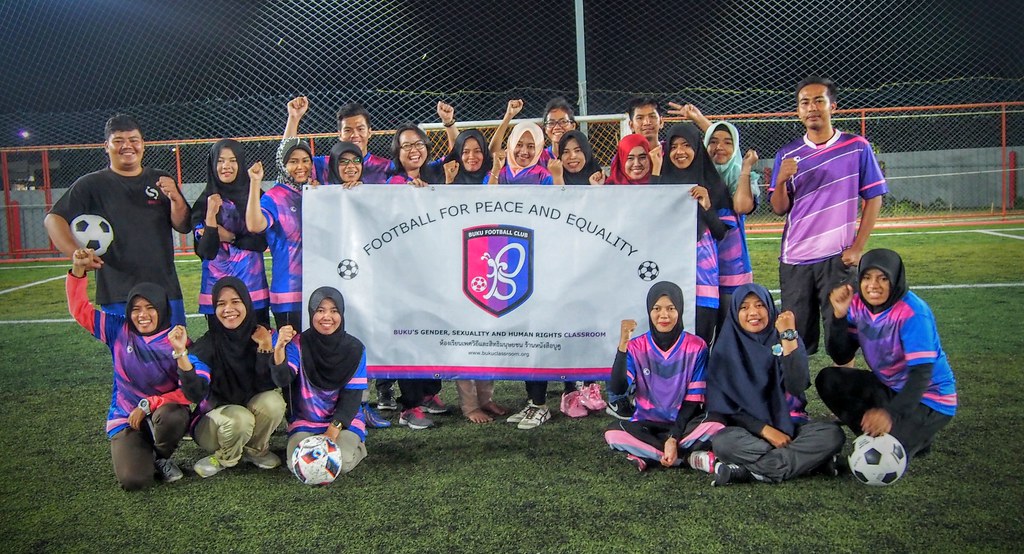

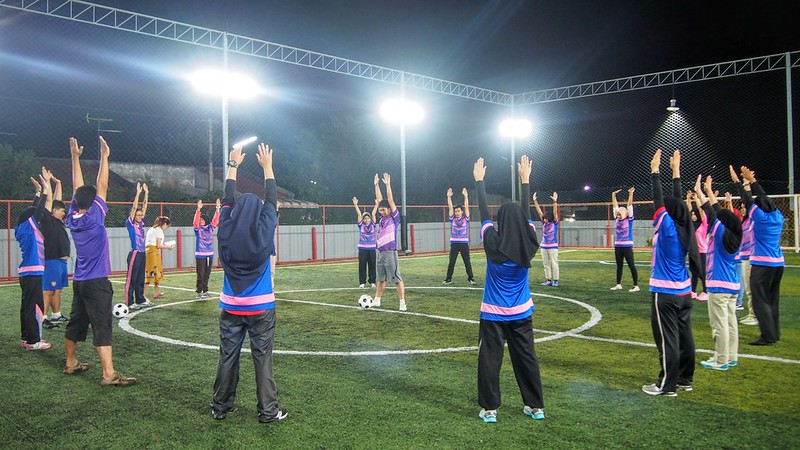








 The junta is attempting to make Thailand a business hub of mainland Southeast Asia, approving billions of baht in new infrastructure in the process. In May 2015, the National Council for Peace and Order (NCPO) issued NCPO Order No. 17/2015, turning large areas along the country’s borders into SEZs where industry deregulation and tax cuts are offered to lure investors.
The junta is attempting to make Thailand a business hub of mainland Southeast Asia, approving billions of baht in new infrastructure in the process. In May 2015, the National Council for Peace and Order (NCPO) issued NCPO Order No. 17/2015, turning large areas along the country’s borders into SEZs where industry deregulation and tax cuts are offered to lure investors.








